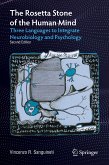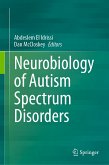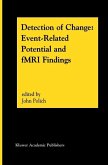This is the first book to extensively explore the current state-of-the-art and promise of engram cells, the closest physical approximation of the memory trace to date. Converging evidence suggests that memories are stored, at least in part, as specific populations of engram cells. In this book, the leading experts in engram biology share their continuously refined insights on how engram cells contribute to information encoding and storage, across diverse brain regions and behavioral modalities. "
Engrams: A Window into the Memory Trace" is broad in scope and spans molecular, cellular, circuit, computational as well as societal-philosophical aspects of memory engrams. Particular emphasis is placed on their emerging translational value for memory dysfunctions in age and stress-related disorders.
Dieser Download kann aus rechtlichen Gründen nur mit Rechnungsadresse in A, B, BG, CY, CZ, D, DK, EW, E, FIN, F, GR, HR, H, IRL, I, LT, L, LR, M, NL, PL, P, R, S, SLO, SK ausgeliefert werden.









